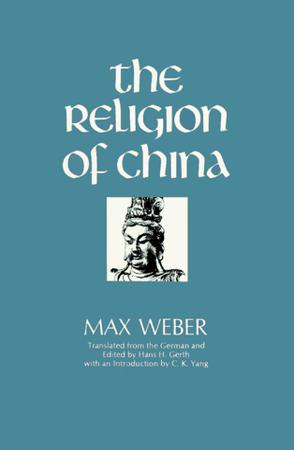
内容简介
"The Religion of China: Confucianism and Taoism" (original Free Press edition 1951) is one of a number of works by the German sociologist Max Weber (1864-1920) published in English translation only long after his death, during a post-World-War II boom in Anglo-American interest in his writing. Such interest has recurred at irregular intervals since (one marked by this 1968 paperback reprinting), and Weber's major works, including technical and methodological studies, apparently have all been translated. Initially familiar to readers of English only for his theories on the relation between the Protestant (mainly Calvinist) world-view and the capitalist "rationalization" of economic life ("The Protestant Ethic and the Spirit of Capitalism"), Weber gradually has been revealed as an explorer of the nature of human societies in many times and places. Sinologists have given his studies of China (here and in a few essays published elsewhere) a somewhat mixed reception. On the one hand, it was an important example of China being taken seriously as major civilization, illustrating basic trends in human social behavior, instead of an exotic footnote ("Oriental Despotism," "The Oriental Mode of Production"). A product of Bismarck's Germany, Weber was acutely aware of the effects of bureaucracy, centralization of authority, and economic rationalization on traditional societies, and used China as a test case for his general theories. The religious responses to China's social and political order are a main, but not the only focus, and his treatment of both Confucianism and (mainly philosophical) Taoism as embodying genuine religious experiences was then unusual. Weber's mastery of the available translations and secondary literature is often mentioned as amounting to nearly a professional command of the field. On the other hand, Weber *was* unable to consult the primary sources directly. He was acutely aware that much of his information came from missionaries with ideological biases; according to some, however, he often chose the *wrong* missionary to believe. He seriously underestimated the antiquity of some developments in Chinese government. His examples are sometimes wrong, sometimes not especially pertinent; and better ones are missing because he had no access to them. He accepted the view of Confucius as a sort of learned academic with an interest in ethical government (popular among some modern Chinese as well as westerners), without seeming to notice that he has often been regarded as a supernatural figure, a prophet, or, in Weber's own terms, a "charismatic" leader. And the study of Buddhism in China was in its infancy, and its transformative impacts on Confucian and Taoist thought and practice only beginning to be grasped. The study of the very complex history of Taoism *as a religion* is also mostly a more recent development. Bearing these limits in mind, Weber's study remains fascinating. His suggested interpretations of Chinese society have set the terms for much research attempting to confirm or refute his ideas. He was sometimes wrong about both absolute and relative datings, but he recognized many important trends, and successfully framed them in larger contexts. As very much an amateur in Chinese studies (with greater limits than Weber, and not nearly as industrious, but able to benefit from modern scholarship), I have long found the book illuminating; I just try to check it against recent studies. For those who are familiar with Weber only for "The Protestant Ethic" (and the attendant controversy), this volume, and its companions on "Ancient Judaism" and "The Religions of India," may come as a considerable surprise. Those interested in the sociology of Chinese religion (rather than beliefs and practices) will want to take a look at a book by C.K. Yang, the author of the Introduction to this translation. Yang's "Religion in Chinese Society: A Study of Contemporary Social Functions of Religion and Some of Their Historical Factors" (originally University of California Press, 1961) provides information on Chinese religion in relation to government policies, and community and family structures, with documentation for specific regions. I consider it a complement, not a substitute, for Weber, because several chapters are probably too statistical to make it attractive to many readers. Yang also assumes familiarity with a body of professional sociological thought that Weber was still establishing. Of course, it too is beginning to show its age.
下载说明
1、The Religion of China是作者Max Weber创作的原创作品,下载链接均为网友上传的网盘链接!
2、相识电子书提供优质免费的txt、pdf等下载链接,所有电子书均为完整版!
